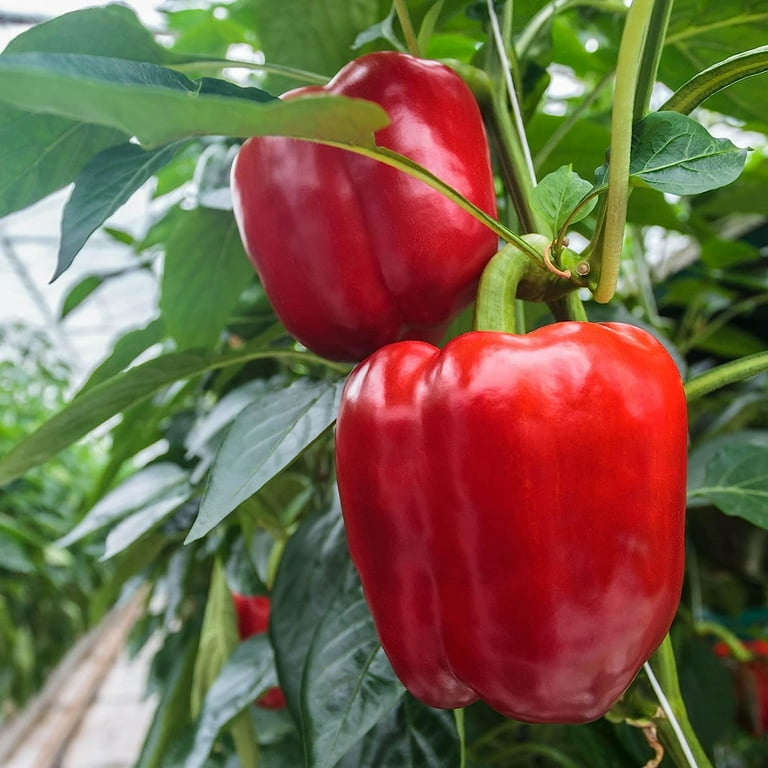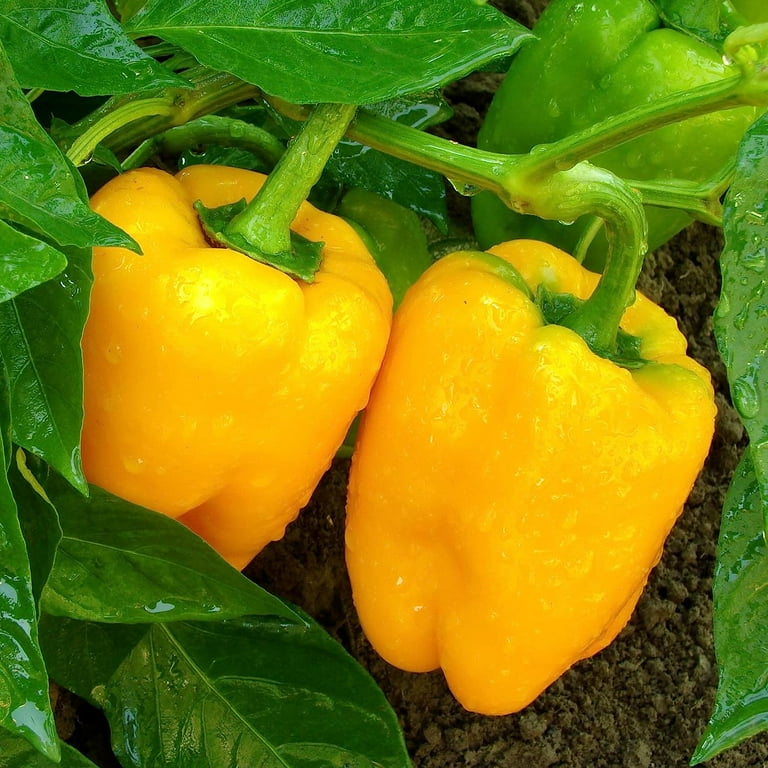Organic Vs. Synthetic Fertilizers: Which Is Best for Nurturing Healthy Pepper Plants?
In the world of supporting healthy pepper plants, the choice in between artificial and natural fertilizers stands as a critical decision with far-ranging ramifications. While both options aim to give necessary nutrients to support plant growth, the subtleties of their influence on the soil, plant wellness, and the atmosphere spark a discussion that echoes throughout the gardening neighborhood. Understanding the distinctive advantages and potential challenges of each fertilizer kind is critical for pepper cultivators looking for to enhance their returns while preserving a sustainable and eco-conscious approach.
Advantages of Organic Fertilizers
Organic plant foods provide a lasting and environmentally-friendly strategy to nourishing pepper plants, giving vital nutrients without using synthetic chemicals. These all-natural fertilizers are originated from natural sources such as garden compost, manure, bone meal, and seaweed, advertising soil health and biodiversity. Unlike synthetic fertilizers, natural alternatives release nutrients gradually, guaranteeing a balanced and constant supply for pepper plants to flourish.
One considerable advantage of natural fertilizers is their capability to boost soil structure and water retention. By boosting dirt health, organic plant foods advertise helpful microbial activity, which assists in nutrient uptake by pepper plants. Additionally, organic plant foods lower the risk of chemical run-off, securing water resources from pollution and protecting the atmosphere.
In addition, organic fertilizers add to long-lasting dirt fertility by advertising the development of advantageous soil microorganisms. These microorganisms aid break down raw material, releasing nutrients in a type that is conveniently obtainable to pepper plants. best fertilizers for peppers. By fostering a healthy soil environment, natural plant foods support sustainable pepper cultivation methods that benefit both plants and the atmosphere
Disadvantages of Artificial Plant Foods
Synthetic fertilizers, in contrast to their organic equivalents, pose various disadvantages when used to nourish pepper plants, influencing both plant wellness and ecological sustainability. One significant disadvantage of synthetic fertilizers is their tendency to seep nutrients from the dirt swiftly. This fast leaching can result in nutrition discrepancies in the soil, causing plants to struggle with deficiencies or poisonings. Additionally, synthetic fertilizers can damage beneficial dirt organisms, such as earthworms and beneficial bacteria, interfering with the dirt community's balance.
Moreover, the overuse of artificial fertilizers can add to water air pollution. Excess fertilizers not soaked up by plants can wash away into water bodies, bring about eutrophication, where algae flowers diminish oxygen levels in the water, damaging water life. Synthetic plant foods are generally acquired from non-renewable resources, such as fossil gas, adding to carbon emissions and ecological destruction during their manufacturing.
Nutrient Absorption Contrast
Efficient nutrient absorption plays an essential function in the overall health and wellness and development of pepper plants. When comparing natural and synthetic plant foods in terms of nutrient absorption, organic plant foods have the benefit of offering a much more well balanced and slow-release source of nutrients (best fertilizers for peppers). Organic fertilizers have a variety of macro and micronutrients that are not just beneficial for the plants however likewise advertise healthy soil microbial activity, which assists in nutrient uptake. On the other hand, synthetic fertilizers commonly provide a quick release of nutrients, which can cause seeping and drainage, causing reduced nutrient absorption rates by the plants.
Moreover, natural fertilizers improve soil structure and water retention capacity, allowing pepper plants to access nutrients much more efficiently. This improved dirt top quality helps with root development, allowing better nutrient absorption. Synthetic plant foods, although originally enhancing plant development because of their high nutrient concentrations, may impede long-lasting nutrient absorption by degrading dirt wellness gradually.
Environmental Impact Factors To Consider

On the other hand, artificial fertilizers, although often even more instantly available and focused to plants, can have harmful results on the atmosphere otherwise applied properly (best fertilizers for peppers). Their production calls for high energy inputs, bring about greenhouse gas discharges and adding to climate change. In addition, the overflow of excess artificial fertilizers can pollute water resources, resulting in eutrophication and damaging aquatic ecological communities.
Ideal Plant Food Practices for Peppers
When fertilizing pepper plants, optimizing nutrient uptake and lessening ecological influence are key considerations. To accomplish this, it is vital to follow finest plant food practices tailored to the specific requirements of pepper plants. One crucial method is to do a dirt examination before applying any fertilizers. This test can identify the pH level of the soil and identify any nutrient deficiencies, directing you in choosing the most suitable fertilizer solution.
One more crucial method is to fertilize pepper plants at her comment is here the right time. Typically, peppers gain from obtaining fertilizer at planting and after that once more when they start to flower. Visit Website Over-fertilizing can result in nutrient inequalities and damage the plants, so it is important to follow advised application prices.
In addition, selecting a well balanced fertilizer with an NPK proportion that suits pepper plants' demands is fundamental. Ultimately, combining organic and artificial fertilizers carefully can assist nurture healthy and balanced pepper plants while minimizing environmental impact.
Verdict

Organic fertilizers use a lasting and environmentally-friendly method to beneficial pepper plants, providing vital nutrients without the usage of artificial chemicals. Unlike synthetic fertilizers, natural alternatives release nutrients slowly, making certain a well balanced and constant supply for pepper plants to thrive.
Synthetic fertilizers, in comparison to their natural equivalents, posture various drawbacks when utilized to nurture pepper plants, influencing both plant wellness and environmental sustainability. When get more comparing organic and synthetic fertilizers in terms of nutrient absorption, organic fertilizers have the advantage of supplying a much more well balanced and slow-release resource of nutrients.In addition, natural plant foods boost dirt framework and water retention capacity, allowing pepper plants to access nutrients much more efficiently.